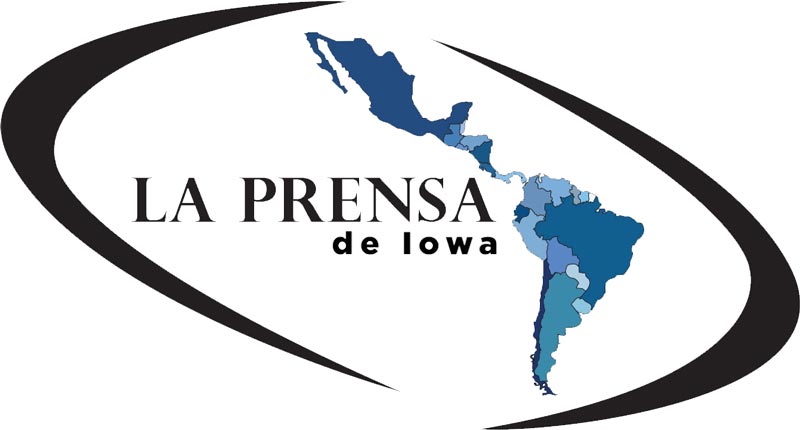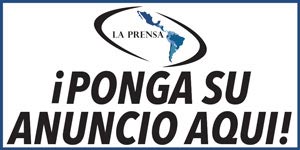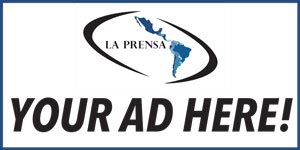Ortega libera a los principales líderes de las protestas
/English translation provided at the end.
El Gobierno excarcela a 56 personas después de aprobar una polémica ley de amnistía
Redacción
LA PRENSA
El País, en su página digital informó el día de ayer que, Daniel Ortega ha dado en los últimos días un inesperado giro a la crisis que vive Nicaragua. Este martes fueron liberados 56 presos políticos encarcelados tras la represión contra las protestas que desde el año pasado exigen el fin del régimen sandinista. Entre ellos se encuentran los principales líderes de la revuelta cívica. La liberación ocurre horas después de la excarcelación de otros 50 reos, todos como consecuencia de la polémica ley de amnistía que el Gobierno de Ortega aprobó el fin de semana, criticada por una oposición que no ha podido evitar la algarabía por la libertad de los presos.
Entre los liberados este martes están líderes estudiantiles como Yubrank Suazo o los periodistas Miguel Mora y Lucía Pineda, director y jefa de información del Cana 100% Noticias, que fueron detenidos el 23 de diciembre, cuando la Policía nacional asaltó y confiscó la redacción. También fue excarcelado el líder campesino Medardo Mairena, quien había sido detenido en junio del año pasado en el aeropuerto de Managua, cuando intentaba viajar a Estados Unidos. A Mairena se le acusa de ser el responsable de un ataque en una lejana aldea del sur de Nicaragua, que dejó varios policías muertos. El día del suceso, sin embargo, el campesino estaba en Managua, en una manifestación opositora. Mairena es dirigente del movimiento campesino, que se opone a la construcción de un canal interoceánico en Nicaragua, una faraónica obra de infraestructura valorada en 50.000 millones de dólares y cuya concesión fue entregada a un empresario chino de las telecomunicaciones.
Las liberaciones se dan tras la aprobación el fin de semana de una ley de amnistía impuesta por Ortega, que ha sido rechazada por la oposición, porque la consideran que se trata de un instrumento jurídico para hacer un “borrón y cuenta nueva” tras las violaciones a los derechos humanos cometidos en el marco de la represión contra las manifestaciones. El texto ordena a las autoridades cerrar los procesos abiertos contra centenares de opositores, acusados de supuestos delitos ligados al terrorismo y liberar a quienes hayan sido encarcelados por las protestas. “Intentan beneficiar a los implicados en delitos de lesa humanidad. Esta ley produce denegación de justicia a las víctimas y promueve la impunidad”, asegura José Pallais, portavoz de la opositora Alianza Cívica, que guardaba cautela tras la liberación de los 56 presos. “Hay una gran satisfacción y alegría, pero aún faltan más de 80 por liberar”, afirmó. La Alianza cotejaba aún a última hora de la mañana las distintas listas de reos con organizaciones y el Gobierno.
El grupo opositor —que reúne a empresarios, estudiantes, académicos, feministas, campesinos y sindicalistas— se había levantado recientemente de las negociaciones con Ortega como presión para lograr la liberación de todos los detenidos. El mandatario se había comprometido a hacerlo y puso como límite el 18 de junio, pero la Alianza consideró que era una forma de ganar tiempo por parte del líder sandinista. Pallais dijo este martes que hasta que no se liberen a todos los detenidos no volverán a sentarse a negociar.
A partir de ahora se abre un horizonte incierto para Nicaragua. Ortega ha cumplido con parte de su compromiso, con el que presumiblemente evitará la aplicación de sanciones por parte de la Unión Europea, como había amenazado con hacer a partir del 18 de junio si no se consumaba la liberación de los presos. La situación económica en el país centroamericano ha empeorado en el último año y ha puesto al régimen de Ortega contra las cuerdas. Fueron las principales fortunas del país quienes forzaron al presidente, con el apoyo de El Vaticano y la Organización de Estados Americanos (OEA), a volver a abrir una mesa de negociación. No obstante, la oposición también tendrá que ver hacia dónde lleva ahora sus reclamos. La liberación de los presos era una de las exigencias, pero también el adelantamiento de elecciones presidenciales, algo que Ortega ha rechazado.
“Estamos en libertad, todo el mundo sabe que somos inocentes, nuestras manos no están manchadas de sangre, no somos terroristas, eso lo tiene bien claro el pueblo de Nicaragua”, dijo la periodista Lucía Pineda en las primeras declaraciones al salir de la cárcel, vestida todavía con el traje azul que les impusieron a los considerados presos políticos en Nicaragua. Pineda, quien también tiene nacionalidad costarricense, agradeció también las gestiones del Gobierno del presidente Carlos Alvarado, de Costa Rica, que presionó al régimen de Ortega por su liberación.
“Soy un hombre libre, yo no he cometido nunca un delito, a mí me secuestraron por seis meses”, dijo por su parte Miguel Mora. El periodista, visiblemente demacrado, aseguró que desde ahora exigirá que sea devuelto su canal, uno de los de mayor audiencia en Nicaragua, que durante los momentos más álgidos de las protestas mantenía una intensa cobertura. “Estábamos trabajando cuando llegó la Policía. El jefe de la Policía me tiene que entregar hasta la última grapa, los vehículos, todo el equipo”, aseguró Mora, quien dijo que se va a comunicar con su equipo de reporteros —muchos de ellos ahora exiliados— para reanudar el trabajo periodístico.
Google Translation
El País, on its digital page, reported yesterday that Daniel Ortega has given an unexpected turn in recent days to the crisis in Nicaragua. This Tuesday, 56 imprisoned political prisoners were released after the repression against the protests that last year demand the end of the Sandinista regime. Among them are the main leaders of the civic revolt. The release occurs hours after the release of another 50 inmates, all as a result of the controversial amnesty law that the Ortega government approved the weekend, criticized by an opposition that has not been able to avoid the hullabaloo for the freedom of prisoners .
Among those released this Tuesday are student leaders such as Yubrank Suazo or journalists Miguel Mora and Lucía Pineda, director and head of information at Cana 100% Noticias, who were arrested on December 23, when the National Police assaulted and confiscated the newsroom. The peasant leader Medardo Mairena, who had been arrested in June last year at the Managua airport while trying to travel to the United States, was also released. Mairena is accused of being responsible for an attack in a remote village in southern Nicaragua, which left several policemen dead. The day of the event, however, the peasant was in Managua, in an opposition demonstration. Mairena is leader of the peasant movement, which opposes the construction of an interoceanic canal in Nicaragua, a pharaonic infrastructure project valued at 50,000 million dollars and whose concession was given to a Chinese telecommunications entrepreneur.
The releases are given after the approval on the weekend of an amnesty law imposed by Ortega, which has been rejected by the opposition, because they consider it to be a legal instrument to make a "clean slate" after the violations to human rights committed in the framework of repression against demonstrations. The text orders the authorities to close the proceedings opened against hundreds of opponents, accused of alleged crimes linked to terrorism and release those who have been imprisoned for the protests. "They try to benefit those involved in crimes against humanity. This law produces denial of justice to the victims and promotes impunity, "said José Pallais, spokesman for the opposition Civic Alliance, which was cautious after the release of the 56 prisoners. "There is great satisfaction and joy, but there are still more than 80 to be released," he said. The Alliance checked the different lists of inmates with organizations and the Government at the end of the morning.
The opposition group - which brings together businessmen, students, academics, feminists, peasants and trade unionists - had recently risen from negotiations with Ortega as pressure to secure the release of all detainees. The president had pledged to do so and put the limit on June 18, but the Alliance considered it a way to gain time on the part of the Sandinista leader. Pallais said Tuesday that until all the detainees are released, they will not sit down to negotiate again.
From now on, an uncertain horizon opens for Nicaragua. Ortega has fulfilled part of his commitment, with which presumably he will avoid the application of sanctions by the European Union, as he had threatened to do as of June 18 if the release of the prisoners was not consummated. The economic situation in the Central American country has worsened in the last year and has put the Ortega regime on the ropes. It was the country's major fortunes that forced the president, with the support of the Vatican and the Organization of American States (OAS), to reopen a negotiating table. However, the opposition will also have to see where their claims are now. The release of the prisoners was one of the demands, but also the advancement of presidential elections, something that Ortega has rejected.
"We are free, everyone knows that we are innocent, our hands are not stained with blood, we are not terrorists, that is clear to the people of Nicaragua," said journalist Lucia Pineda in the first statements after leaving prison , still dressed in the blue suit that they imposed on those considered political prisoners in Nicaragua. Pineda, who also has Costa Rican nationality, also thanked the efforts of the Government of President Carlos Alvarado of Costa Rica, who put pressure on the Ortega regime for his release.
"I am a free man, I have never committed a crime, they kidnapped me for six months," said Miguel Mora. The journalist, visibly emaciated, assured that from now on he will demand that his channel be returned, one of the most attended in Nicaragua, which during the most critical moments of the protests maintained an intense coverage. "We were working when the police arrived. The police chief has to hand me over to the last clip, the vehicles, the entire team, "said Mora, who said he will communicate with his team of reporters - many of them now exiled - to resume journalism work.























